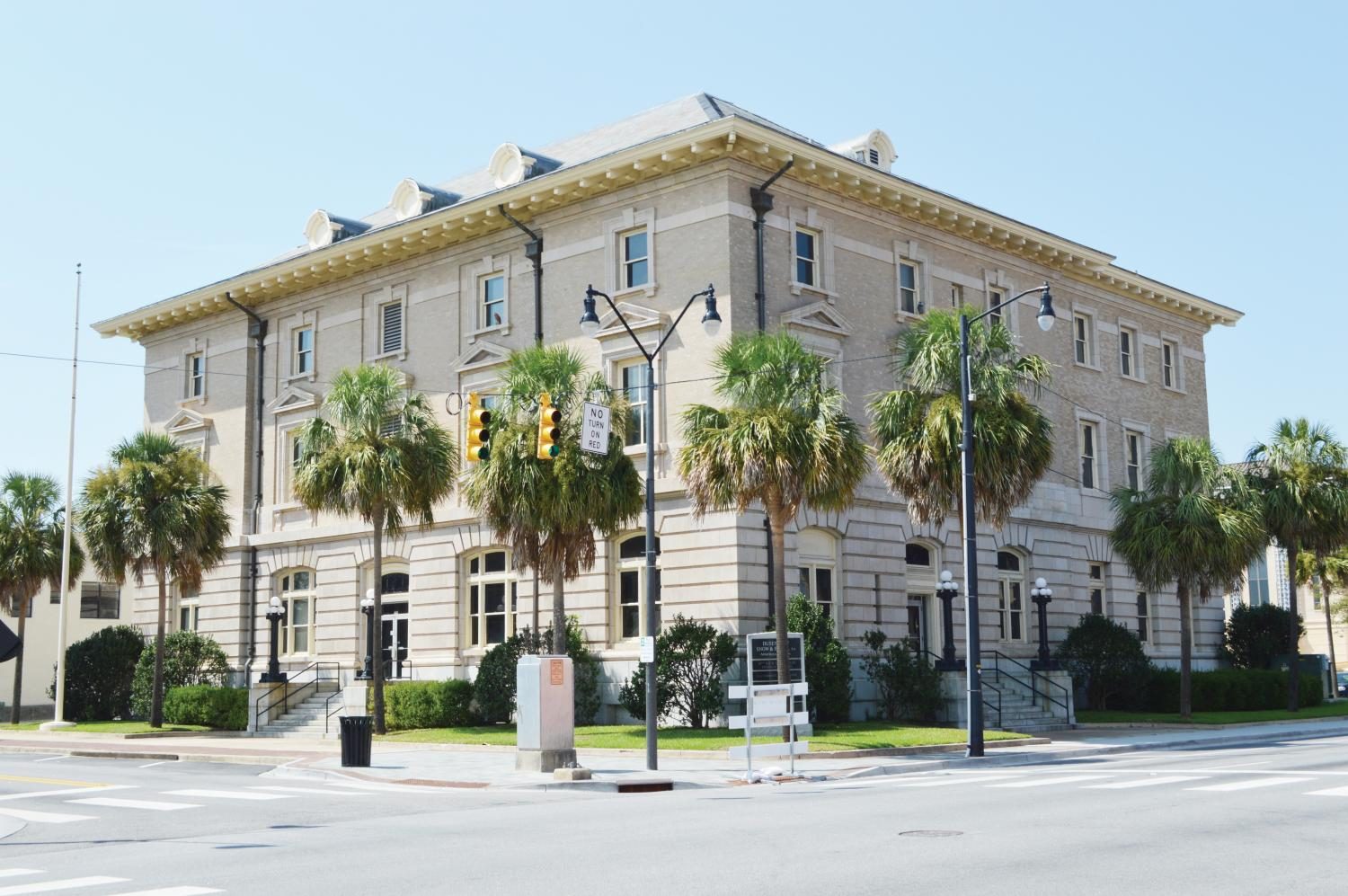FMU starts community clinics, serves underserved population
Photo by: Kyle Graham
The city of Florence, the Bruce and Lee Foundation and the FMU Development Foundation donates the old post office building for the expansion of the health sciences programs.
After receiving the Old Post Office in Florence building by donation, the FMU Board of Trustees and Hope Health, a local health care provider, established a partnership to establish a behavioral health care facility and research facility.
According to FMU President Dr. Fred Carter, FMU received donation of the old post office building because of a joint effort from the Bruce and Lee Foundation, the City of Florence and the FMU Development Foundation, allowing FMU to further health and medical education programs, including behavioral health science clinics.
“It would be sensible and reasonable for us to begin a behavioral and mental health clinic downtown,” Carter said.
Carter said that the partnership with Hope Health is a great partner for the university’s health science programs.
“Hope Health makes a very good partner to join with us in the effort to develop this clinic,” Carter said. “So we began discussions with Hope Health. Conversations went better than we anticipated; they have been very amenable in creating that partnership.”
The behavioral health clinic will consist of a behavioral health facility and a program for FMU graduate psychology students to practice counseling in a realworld setting, Carter said.
“It would be an applied program for graduate students,” Carter said. “That would give our students a learning laboratory downtown, a practice site to work with faculty and perfecting their counseling abilities. It will help the graduate psychology students, but they will be able to give opportunities to undergraduate students.”
According to Carter, it would also address the need this community has for a free clinic for people with behavioral health problems to seek help and direction.
According to Dr. Ronald Murphy, associate professor of psychology and clinic director, students will begin working with Hope Health in January.
“We are going to try and arrange it so that they will be working practica or internships,” Murphy said. “They will be the ones who will be working while being supervised by Hope Health staff or by us. We are still working out with them exactly how this is going to work, but they are very open to it.”
Students will see clients ranging from children to adults with mental health disorders such as depression, anxiety, schizophrenia and bipolar disorder.
“It’s a tough clientele; the clients are people with multiple problems,” Murphy said. “That’s just one way we are hoping to serve this agency: to help serve the underserved.”
When the Old Post Office building is finished, Hope Health will house a clinic there. In addition to Hope Health’s clinic, the FMU Department of Psychology will move its clinic into the Old Post Office building.
“It’s a difficult process,” Murphy said. “We want to have all these things, the FMU Behavioral Health Clinic and the Hope Health stuff in order to be the place where students get their community experience.”
Currently, students are meeting in the Carter Center and counseling homeless residents.
Murphy said he hopes to serve the underserved individuals in the community.
“We are trying to work out a deal with them where we go over there with them and help them because that’s part of the mission here at FMU that I’m very invested in: helping the community with people who are undeserved,” Murphy said. “FMU, through the psychology department, is really trying to reach the underserved in Florence.”
Carter said he hopes that the Old Post Office will begin renovations next summer and will be finished a year after beginning renovations.
“We are hopeful that the state will pass a bond bill,” Carter said. “In the draft version of the bond bill right now, which will be taken into the hands of the house in January, there is $8 million set aside for this building.”
In addition to starting behavioral health clinics, FMU hopes to house its speech therapy and occupational therapy programs in the old post office building.
According to Carter, FMU anticipates the speech therapy program will begin in the fall of 2018 and the occupational therapy program will begin in the fall of 2020.
